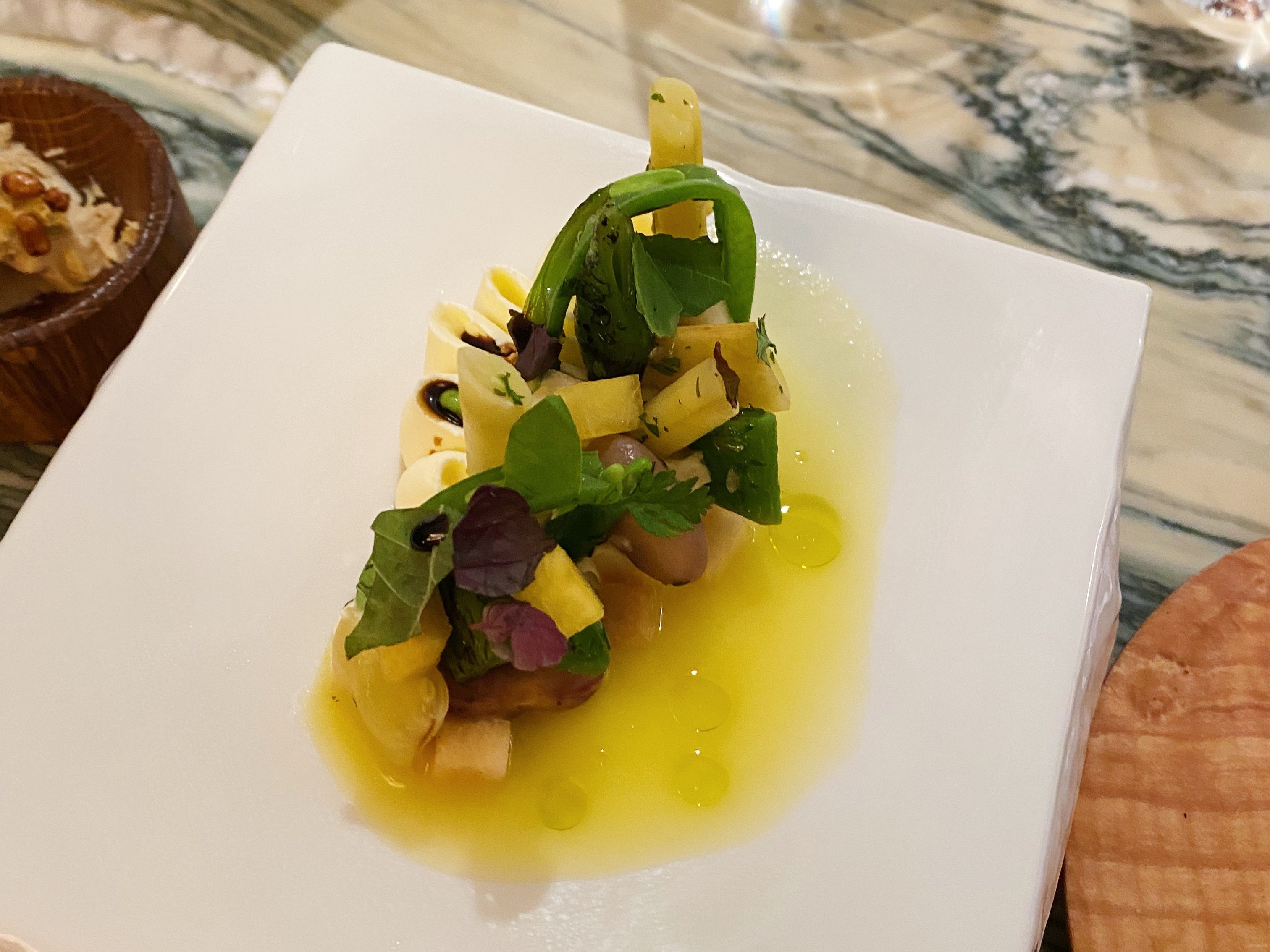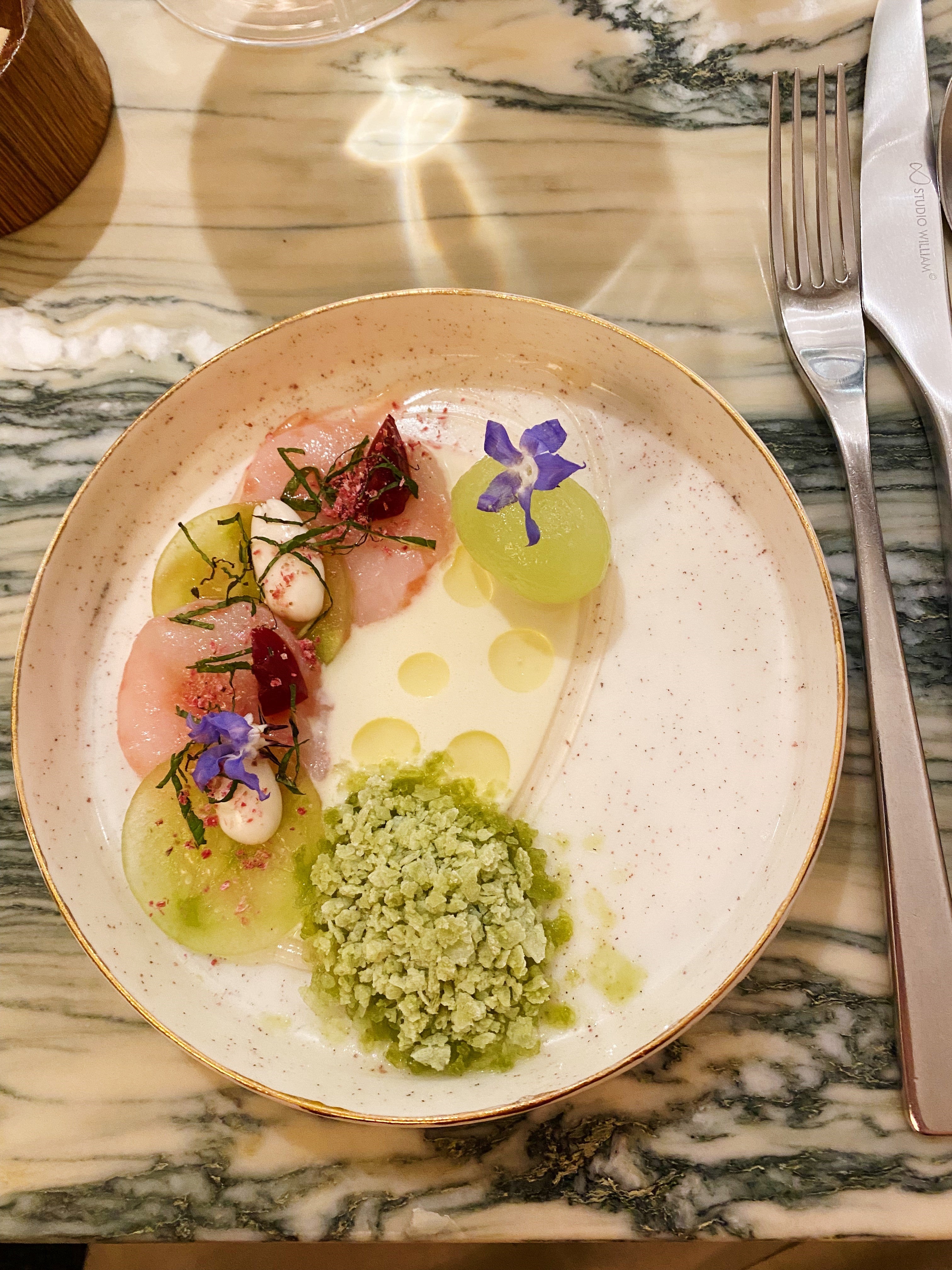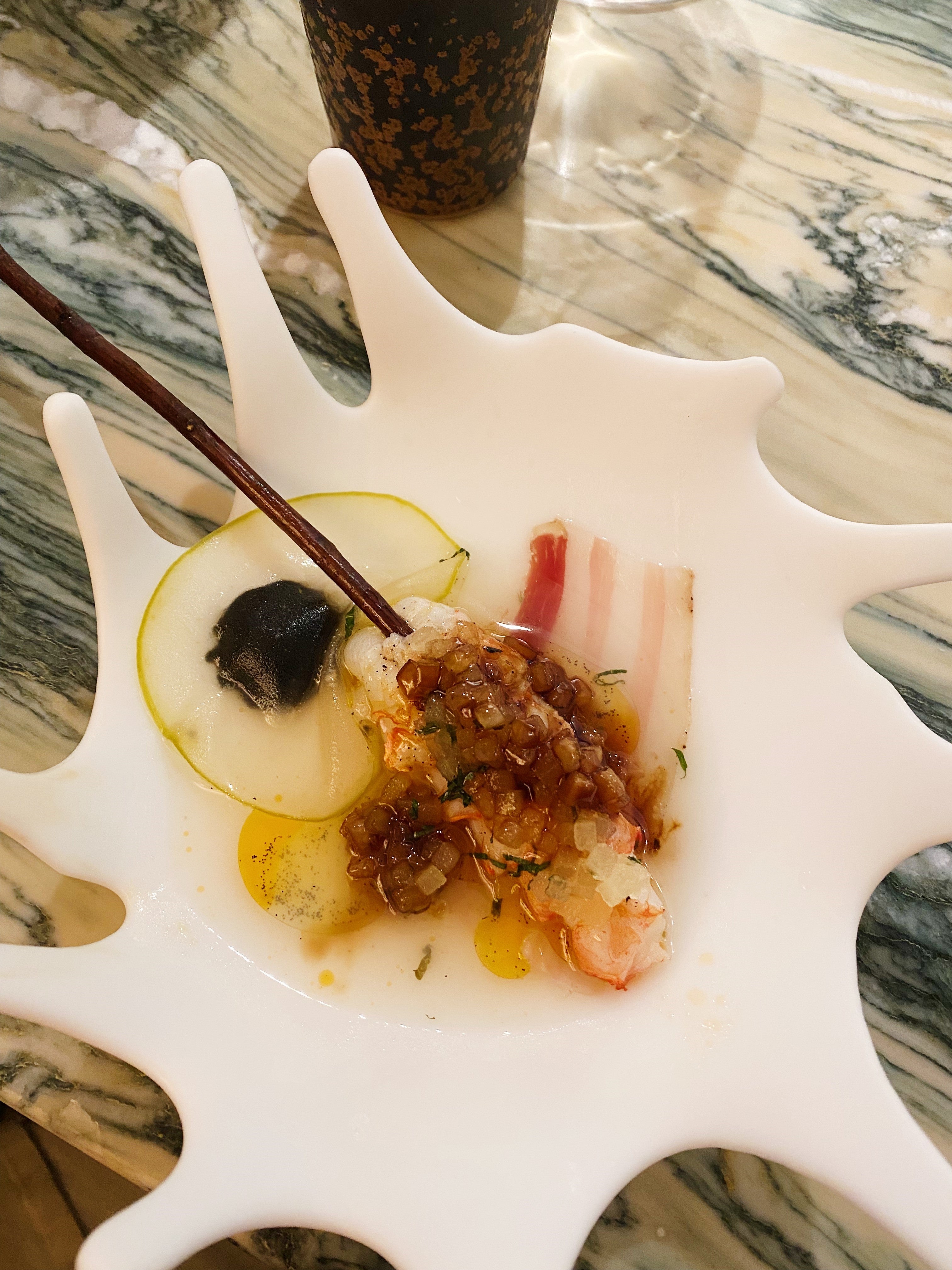Muse: This is not just food, it’s stories on a plate
For all its tall tales and childhood memories, Tom Aikens’ Muse doesn’t live up to that reputation, says Molly Codyre. This is food at its gilded best


Your support helps us to tell the story
From reproductive rights to climate change to Big Tech, The Independent is on the ground when the story is developing. Whether it's investigating the financials of Elon Musk's pro-Trump PAC or producing our latest documentary, 'The A Word', which shines a light on the American women fighting for reproductive rights, we know how important it is to parse out the facts from the messaging.
At such a critical moment in US history, we need reporters on the ground. Your donation allows us to keep sending journalists to speak to both sides of the story.
The Independent is trusted by Americans across the entire political spectrum. And unlike many other quality news outlets, we choose not to lock Americans out of our reporting and analysis with paywalls. We believe quality journalism should be available to everyone, paid for by those who can afford it.
Your support makes all the difference.Walking into Muse by Tom Aikens, I felt a serious sense of kinship with Alice, after she fell down the rabbit hole and into Wonderland. The restaurant looks like Tim Burton and Fred Flintstone had some kind of love child that set up shop in Belgravia – that is, surrealist, prehistoric, terribly expensive and downright beautiful.
When Muse opened, pre-pandemic at the start of 2020, someone at The Daily Mail called it “10 courses of twaddle” and “the most pretentious ever” so it’s safe to say I was intrigued – especially as someone who has a strong aversion to most degustation dining and a personal hatred of the phrase “tasting menu” (it elicits an almost visceral full-body cringe). I appreciate thoughtful food and hold an almost envious level of admiration for people who plate up dishes so intricately strung with detail that they would be better served in the Tate than on my table. However, the terms “tasting menu” and “degustation” are flung around so often, serving as a cover-up for what is essentially tasteless fluffy, that they might be better as members of the Tory Party.
Muse, for all its tall tales and childhood memories, does not live up to that reputation. This is food at its gilded best. Yes, your wallet will take a beating, but I would say there are few dining experiences in London at the moment with the same price tag that don’t leave you feeling ripped off. My mum is visiting me at the moment, so I took her along with me. The apple doesn’t fall far when it comes to dining tastes – in fact, much of my fussiness is inherited – and even she left dinner enamoured, claiming it as one of the best meals of her life.

The Muse website describes it as Aikens’ return to “experience-led fine dining”, which feels like a fitting summary. This is not just food, it’s stories on a plate. It’s extravagant interiors that you can’t help but gawk at. It’s bread served with not one, but three different butters. And at the centre of it all is Aikens himself – evidently the man in charge but equally letting his brilliant team shine. And brilliant they are. In a place like this a certain level of stuffiness would almost be expected, unwanted but possibly forgiven. Here, however, the service was breezy and friendly, underpinned by a level of professionalism that speaks to a true passion for the industry. Restaurant manager Julien was an absolute delight, anticipating any request and always one step ahead. And also, a bit of a laugh. The man knew his wines and you can imagine he’d be great around a dinner table.
Aikens’ career path hasn’t been smooth sailing. There was the infamous knife incident, when the chef allegedly burnt a teenage member of his staff with a hot knife. In a 2010 interview with The Guardian he attributed it to the pressure place on him from holding such a prestigious role at such a young age (he was 26 with one Michelin star at the time). There have been a few failed restaurant ventures, but all of this seems to have imparted both a sense of humility and the time and hindsight to streamline what he wants from the restaurant world, and in turn what it needs from him.
Aikens rose to fame in a generation of chefs infamous – almost lauded – for their fiery outbursts and kitchen terrors. None of this was even remotely evident at Muse. Towards the end of our meal, we overheard Aikens reprimanding one of the sous chefs for not rendering the fat on a piece of duck correctly (sitting at a bar around the kitchen means there is no hiding). But, instead of a walloping telling off or a passive aggressive undercut, Aikens took the time to walk the chef through the process, turning a mistake into a learning experience. He seems to have come a long way from whatever happened at Pied à Terre in 1999.

It probably helps that Muse feels like a distinctly personal project for Aikens. Every aspect of the experience is anchored in his childhood in Norfolk. Each course follows a story – it might be memories of foraging in the garden with his mother, or catching and cooking fresh fish in the south of France. Others are a little more conceptual – the idea of scaling new heights and achieving perfection is represented by cherry blossoms used in a vinegar marinade for scallops. Getting your ducks in a row acts as a metaphor for a kitchen that runs like a well oiled machine and unsurprisingly features duck served three ways – roasted breast, sausage cassoulet and a consomme reduced into a broth.
While at times the concept might feel a little obscure, it helps bring a personal touch to the meal, one that is exceptionally fitting given the mews house setting. I could delve into the specifics of each plate – “smokey summers” featured a perfectly cooked piece of sea bass, smokey aubergine puree, a pressed, glazed and fried aubergine slice, three different types of tomato alongside a datterini consomme and salsa verde (quite a mouthful, both literally and figuratively) – but that would be besides the point. (And plus, there were so many elements on each dish that I’d just about need to have transcribed the entire evening to get them all down on the page.) The point of Muse is to let yourself be taken on the journey, and find you’ll be pleasantly surprised by what is set down in front of you. Yes, the lack of detail and commitment to nostalgia-led storylines could be seen as a bit wanky, but, to be honest, wanky can be fun.
Food is a serious thing. It is inherently tied to cultures and it can tell centuries’ worth of stories, tracking the movement of people and the shifting of lives. But that doesn’t mean that it can’t also be playful. Here, Aikens tells his own story, one that starts in Norfolk and features love letters to beech trees and memories of potatoes fresh from the ground. It is, in a way, a rabbit hole to his very own wonderland.
Counter Culture
This week’s food and drink news
Milanese pasta spot Miscusi opens its first international outpost in London
Pasta is my guiltiest pleasure. I truly think if I was required to eat one thing for the rest of my life, that is what I would choose. London is awash with great pasta restaurants, and another is joining the fold in November. Setting up shop in Covent Garden, the restaurant has a strong eco-friendly ethos which will shine throughout the dishes and ingredients.
Isla reopens on the ground floor of the Standard
Pretty much anything the Standard touches is set to become a cult favourite, so the reopening of Isla will no doubt come with great fanfare. A little closer to Earth (both literally and metaphorically) than Decimo, the restaurant will serve up a seasonal menu with dishes like XO scallops and whole lemon sole with seaweed butter. Yum.
The Last Dance at Marylebone’s Carousel
The carousel is coming to a halt – at least, on Blandford street. To celebrate their last week before moving to a bigger and better site on Charlotte street, Carousel will fling open its doors one last time in the week of 21 September, serving up a menu comprising highlights from over the years. Having played host to over 300 chefs since opening in 2014, the menu is sure to be a running order of some of the country’s most exciting food professionals.
Join our commenting forum
Join thought-provoking conversations, follow other Independent readers and see their replies
Comments